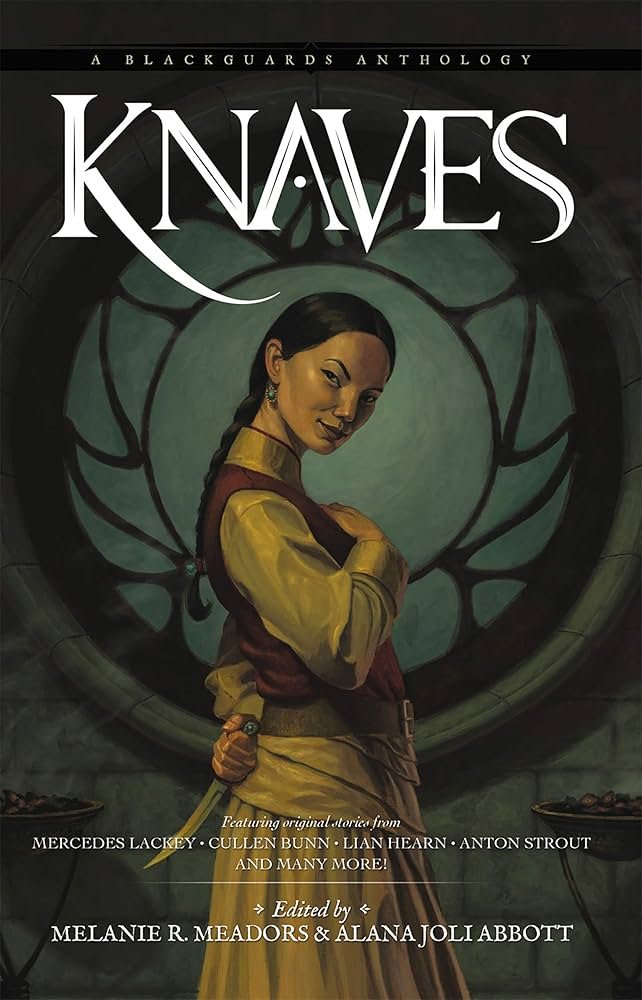In Knaves: A Blackguards Anthology (Outland Entertainment, 2018), Editors Melanie R. Meadors and Alana Joli Abbott brought together 14 stories about anti-heroes, heroes discovering the darker sides of themselves, and villains discovering their nobler aspects. Here are my thoughts on two of the stories contained in an anthology that covers a variety of genres.
cover art by Daniel Rempel
“Daughter of Sorrow” by Maurice Broaddus
“Our kind is never alone.” I really wasn’t sure, thanks to that opening sentence, what genre of story I was in for. “Our kind” meaning … vampires? Clandestine super-humans? Aliens living among us? So many possibilities, and any of them would have been interesting in Broaddus’ hands. What we get is the tale of Rianna, a teenage girl whose family is part of a secret society that runs the world. Rianna’s father is missing and presumed dead, which leaves her adrift and in harm’s way thanks to the society’s rules. Broaddus reveals the danger she’s in through a series of encounters with classmates and doles out the details of her relationship with her father via flashbacks. The alternating scenes build the suspense of both storylines effectively up to the moment they come together. The story is complete unto itself but did leave me wanting more of both Rianna and the Grendel Society.
The Life and Times of Johnny the Fox by Sabrina Vourvoulias
“The Life and Times of Johnny the Fox” is a story about a classic trickster personality, about community, and about doing the right thing even when it’s not the easy thing.
One of the many things I love about this story is what I can only describe as the “street corner urban legend” style of the narration. Imagine walking through a Philadelphia neighborhood, stopping into a bodega for a bottle of water or soda while you’re in the middle of telling your companion a local legend you’ve heard, and having someone say, “I am here to tell you the truth about the Johnny the Fox.” That first sentence sets that tone, and the rest of the story delivers on it.
Every Sabrina Vourvoulias story has an undeniable rhythm, a musicality that drives it. “The Life and Times of Johnny the Fox” is no exception. There’s the beat of the narration, a very particular style of storytelling that sweeps you up and carries you along. But music, singing especially, also plays a part in the main action of the story as Johnny returns to Puerto Rico at a particularly dangerous time for the island, to try to do what he does best: convince someone not to do the terrible thing they’re about to do. But even the most charismatic people stumble sometimes, and how Johnny recovers from that with the help of a community that loves him (even if they don’t always like him) is just as important as whether he succeeds.





